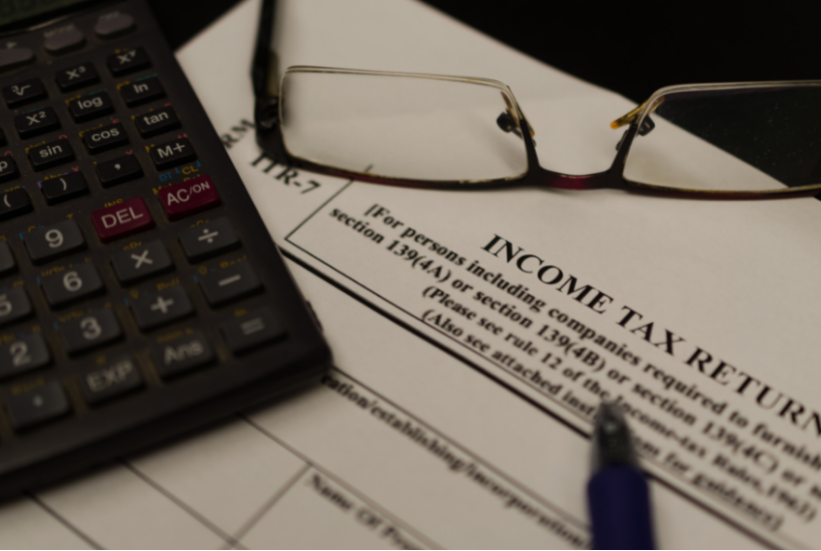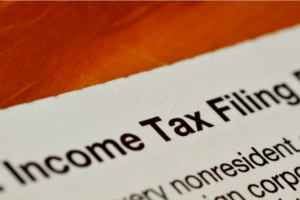
Who is Required to File an Income Tax Return in Ontario?
In Canada, everyone should file an income tax return every year. This obligation extends to individuals who live in Ontario and reside elsewhere in Canada.
Filing your taxes should be one of your top annual to-do lists, which is an important one that can impact your financial life.
If you live in Ontario, along with other residents of Canada, you will file both your federal and provincial tax returns with the Canada Revenue Agency (CRA).
For some, filing taxes may be a legal requirement from the CRA to avoid penalties, while for others, it can provide access to benefits from the government.
Who is required to file an income tax return in Ontario?
The simple answer is that most people who earn income in Ontario must file an income tax return. Those with full-time jobs, part-time jobs, self-employed individuals, or people with investment income will need to file a tax return.
Depending on your financial situation, you may have a legal obligation to file your taxes. The requirement to file taxes varies depending on the individual’s situation and the type of income they earn.
Even if you do not earn employment or investment income, you might be required to file an income tax return.
The deadline to file taxes for most individuals is April 30 every year.
Let’s go into a few specific situations for those who should file taxes in Ontario.
If you are employed
In most cases, if you are employed, you will have to file your taxes. If you are employed and received a T4, you can use it to determine how much you have already paid in taxes and pay any remaining taxes when you file your tax returns.
If you are self-employed
For those who are self-employed, the process is a bit more complicated. Self-employed individuals must file a tax return and pay taxes on their net income, which is the total amount of money they earned minus any business expenses.
In addition, those who are self-employed may have to contribute to the Canada Pension Plan (CPP) or might need to pay EI premiums on self-employment income or other eligible earnings.
If you earn other types of income

Most types of income you earn in Canada are taxable.
You might have income from sources outside of a traditional employment income or active business.
These might include:
- investment income – such as interest or dividends
- capital gains – from buying and selling investments such as stocks, mutual funds and even physical property
- rental income – if you own property and rent it to tenants
Even if you incurred a loss this year, you should file your taxes in Canada. Many types of investment losses are eligible for carrying forward. You may be able to reduce your tax bill by applying this year’s losses to future years when you do have income.
If you are a student
Many full-time students do not file taxes because they are not making any income. However, if you are a student that earns any income – part-time, full-time or investment income, you should file your taxes.
If you are a student with a part-time job, your employer may deduct income taxes before paying you. If you are eligible for a tax refund, you need to file a return to receive the refund from CRA.
In addition, if you are a university or college student, you may have received a T2202A tax slip from a qualifying educational institution for tuition, education and textbook tax credits.
If that is the case, you should file taxes to transfer unused amounts in the current year to your spouse, parent or grandparents. Or you might want to make sure that these amounts are available for you to claim in future years when you start making an income.
Filing your taxes is imperative in making sure these amounts do not go to waste.
If you have a family
Families in Ontario are eligible for many types of benefits from the Government of Ontario. These benefit payments can be helpful to make sure you can meet your family’s expenses.
The various government agencies rely on the tax return you file with the CRA to ensure that your family is eligible for the benefits they provide. These may include:
- Canada Child Benefit and Ontario Child Benefit – the CRA determines your family’s eligibility on the adjusted family net income when you file your taxes.
- Ontario Trillium Benefit – if you are eligible for the benefit, the payments rely on filing your taxes by April 30. Delaying filing your taxes may also delay your payments.
Filing your taxes on time is a simple way to ensure that you continue to receive the payments for which you are eligible.
Even if you are not working but receive spousal support payments, that can be considered taxable income. In such cases, the CRA expects that you file your tax return.
If you are senior
Many seniors who are over the age of 65 are retired and no longer earn employment income. However, you likely receive a pension or investment income. Both types can be taxable. Many couples may also elect to split pension income to reduce their combined tax bill. To make this election, you must file your taxes.
In addition, if you are eligible for the guaranteed income supplement (GIS), you will need to file a tax return to receive the payments.
If you need to repay all or part of your old age security (OAS) benefits, you will need to file your taxes with the CRA and repay the amounts due.
Specifically, as a senior in Ontario, you may be eligible for the Ontario senior homeowners’ property tax grant (OSHPTG). This payment is issued only after you file your taxes or four to eight weeks after your notice of assessment or reassessment.
Other reasons to file an income tax return

We have covered several types of situations above. Even if they don’t apply to you, there are a few scenarios in which you still must file your taxes with the CRA.
Here are some specific situations:
- Repayment of benefits: You must file a tax return if you have to repay your old age security (OAS) benefits or employment insurance (EI) benefits. If you have received a collection letter to repay all or part of the Canada recovery benefit (CRB), file a tax return.
- Claim a refund: If you only earned a small income this year but paid taxes, you may be eligible for a refund. The only way to get your tax refund is by filing a return.
- Withdrawals from the RRSP under the Home Buyers’ Plan (HBP) or Lifelong Learning Plan (LLP) – you should file a tax return with the CRA if you have outstanding amounts.
- CRA Request – The CRA sent you a request to file a return – this means that you must file a return with them.
The above scenarios are not an exhaustive list of everyone who needs to file a tax return. If you are not sure whether or not you need to file an income tax return in Ontario, you can contact the Canada Revenue Agency (CRA) for more information.
Should I file a tax return with the CRA even if I am not required?
So far, we have covered instances where Ontario residents may have an obligation to file taxes.
However, there are also good reasons to file your taxes. Most people should consider filing taxes, even if they are not required.
When you file your taxes, even when you aren’t required to, you will be:
- eligible to get your tax refund
- able to show proof of income for loans and mortgages
- qualified to receive benefits and credits where you meet the criteria
Final thoughts on Taxes
Filing your taxes may not be your favourite task, but it is an important one that can impact your financial life.
For some, filing taxes may be a legal obligation to avoid penalties, while for others, it can provide access to benefits from the government.
If you have filed your taxes and now owe money to the CRA, we can help you explore your options to repay what you owe to the CRA and eliminate income tax debt in Ontario.





